#Business advice
Explore tagged Tumblr posts
Text
Takeaways from my mentor
I meet with my mentor as and when he’s available. He manages my family’s money and he’s very good at what he does - his firm manages about $5 billion, and I have great conversations with him.
I don’t want to talk too much about him, but he came from a lower middle class background and today is wealthy beyond comprehension. He could buy a plane or two in the middle of the night if he wanted.
Today we focused a lot of personal growth in my career.
He gave me two books - The Inheritors by Sonu Bhasin and Fortune’s Children by Arthur Vanderbilt.
Here are some brief takeaways:
Work backwards from the outcome you want.
Define the outcome of where you want to be and plan it backwards to your current position.
2. Eliminate, eliminate, eliminate.
Life is all about elimination. Don’t focus on your weaknesses, focus on your strengths. Eliminate all the things you know you’re not good at, you have no interest in and that make you depressed.
3. Intellectual honesty.
Be honest with yourself about things you are good at and are not. The easiest person to fool is yourself.
4. Read one business biography a week.
Everything you’re going in life, there’s a 99% chance someone else has gone through it and come out of it victorious. He also mentioned this article.
5. Outline 3 strengths and 3 weaknesses.
6. (In business/ corporate careers) You’re either primarily an investor (you’d rather fund companies and start ups than start them), an operator (you’d rather build something hands on), or a manager (you’d rather periodically manage something hands off. Like for instance you could have your own franchise bakery chain where you don’t need to exercise minute control over every franchise but you still ensure that there’s some managing done from your part).
7. Do not have extreme ideologies at this age.
Not when it comes to religion, politics, etc.
8. Emotions, money and your time are something you need to be ruthless about. Absolutely ruthless.
Be careful about the friends you have and the influence they have on you.
#ceo aesthetic#that girl#personal growth#strong women#powerful woman#balance#getting your life together#c suite#q/a#productivity#Business#Mentor#mentoring#takeaways#business advice#Corporate#success
1K notes
·
View notes
Text
More free business advice: when somebody comes up with a low-cost, low-quality, inconsistent product to compete with your proven, reliable and popular product, it is not always the right response to say "WE CAN DO THAT TOO!", and alter your proven product to be more like the discount store knockoff.
Edit to add: this is true even if the knockoff is "trending".
7 notes
·
View notes
Text
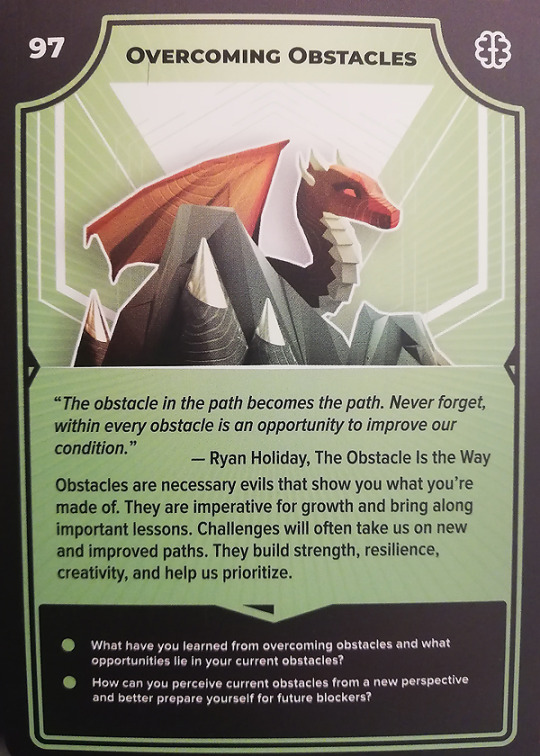
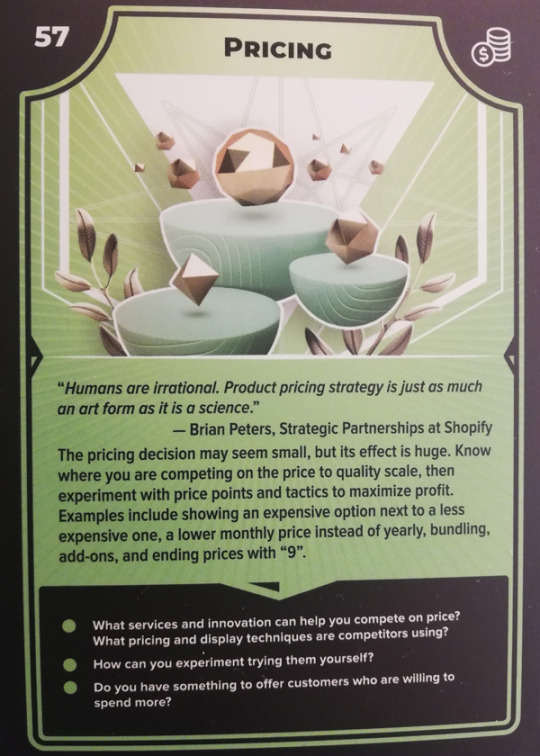
Aries TAurus
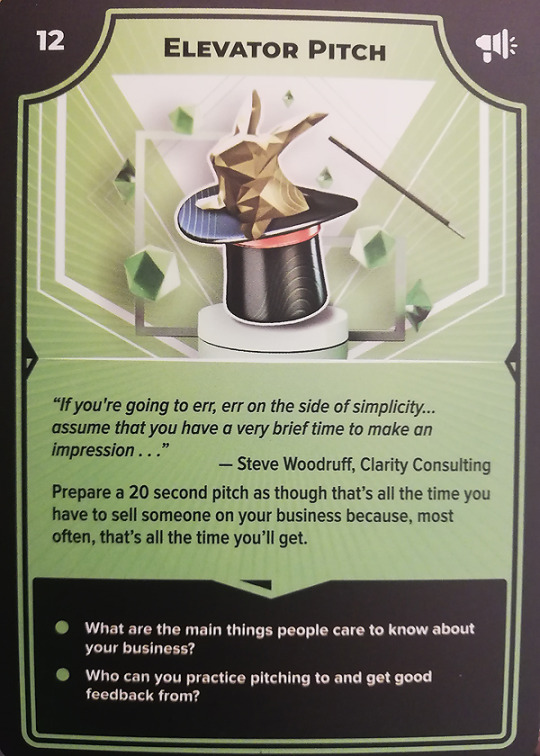
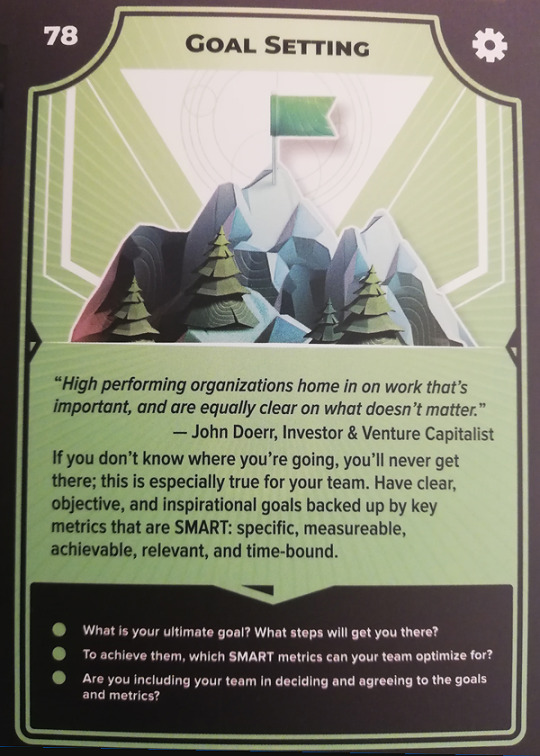
Gemini Cancer
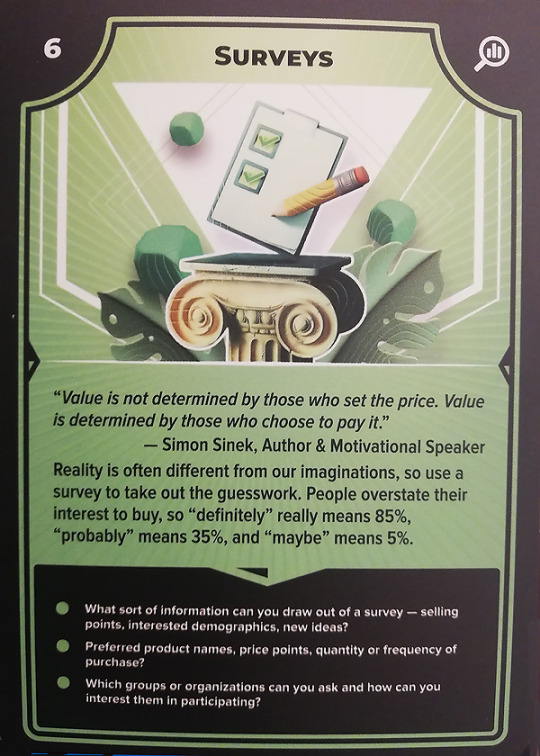
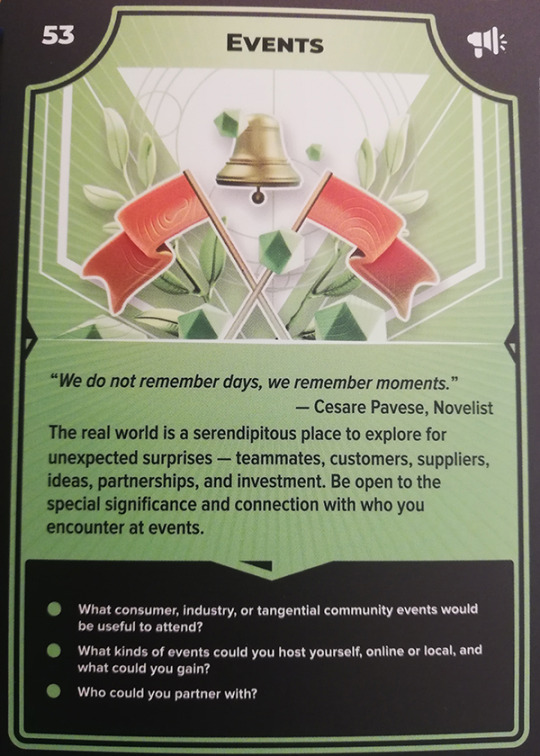
Leo Virgo
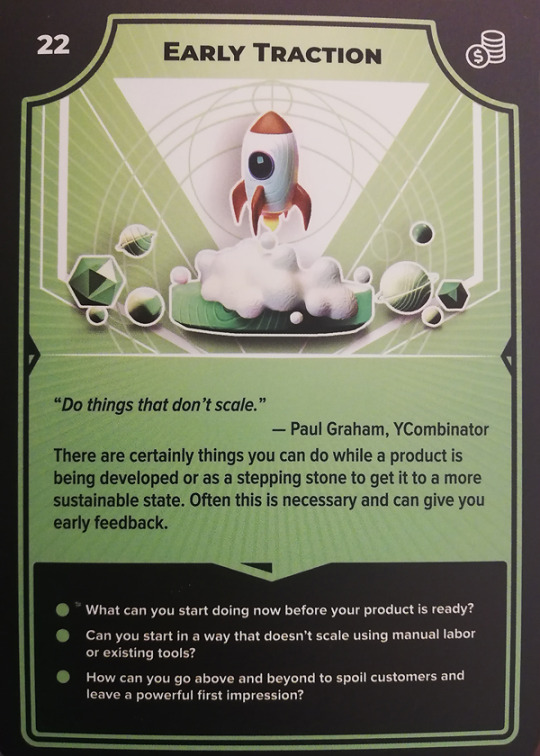
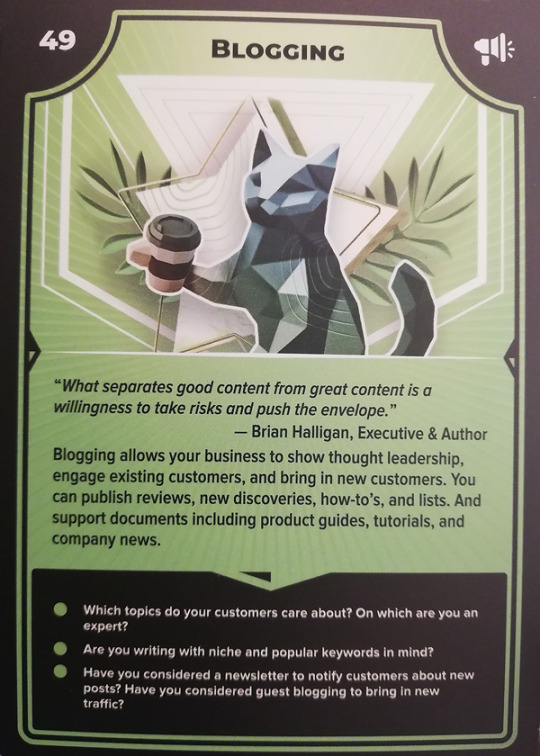
Libra Scorpio
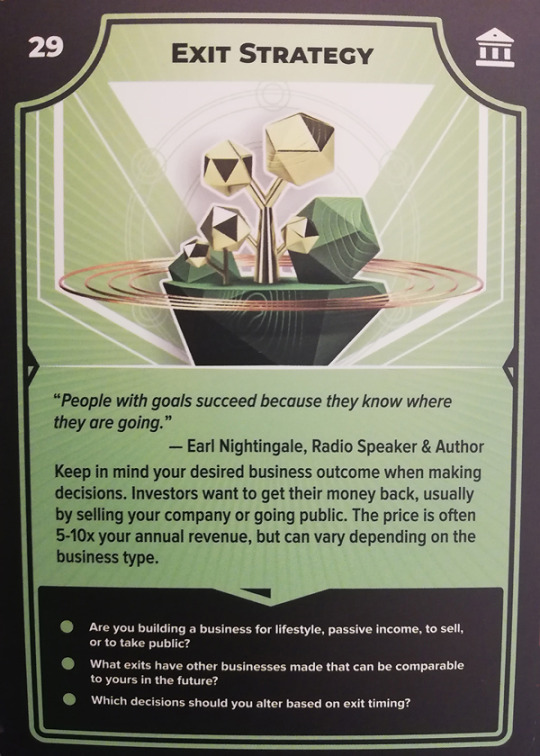
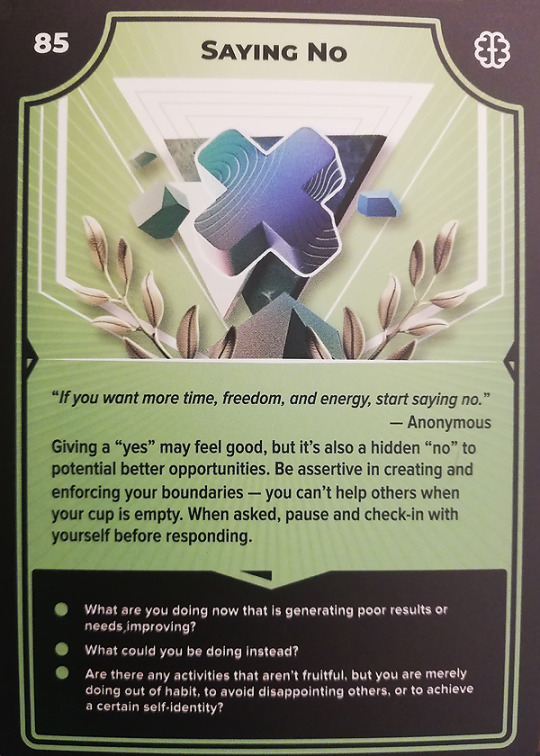
SAgittarius Capricorn (maybe check also Aquarius this time)
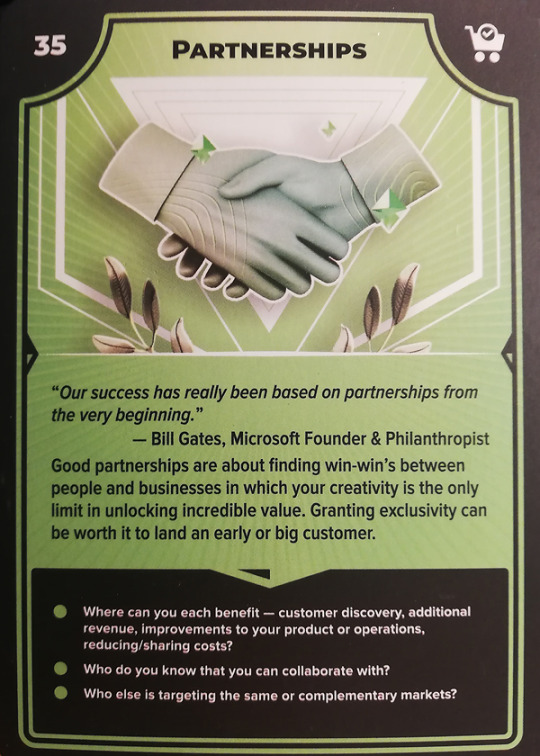
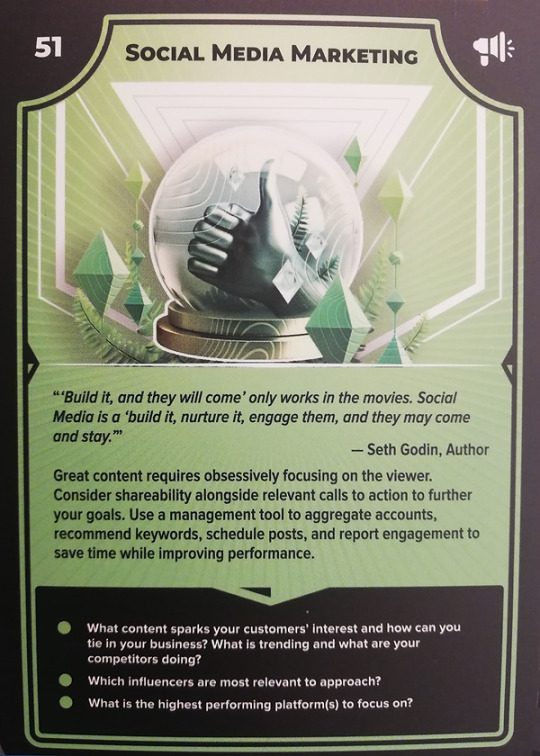
Aquarius (maybe check also Capricorn this time) Pisces
Success cards for time period since 29-September-2024, project/business/work
#oracle#oracle cards#oracle reading#tarot#tarot cards#tarot reading#tarot blog#divination#astrology#consciousness#manifestation#inspiration#business advice
2 notes
·
View notes
Text
‘Wolsey always said that the making of a treaty is the treaty. It doesn't matter what the terms are, just that there are terms. It's the goodwill that matters. When that runs out, the treaty is broken, whatever the terms say.’ It is the processions that matter, the exchange of gifts, the royal games of bowls, the tilts, jousts and masques: these are not preliminaries to the process, they are the process itself.
— Hilary Mantel, 'Wolf Hall'
#how to build community#how to negotiate#business advice#relationship advice#quotes#hilary mantel#wolf hall
3 notes
·
View notes
Text
#nipsey hussle#marathon monday#marathon mondays#the marathon clothing#the marathon continues#tmc#slauson boy#crenshaw#slauson#crenshaw and slauson#60th street#60th street legend#business deal#music deal#record deal#king of la#hussle and motivate#gems#jewels#business advice#mogul#rollin 60s#urban legend#2Pac of my generation#wisdom#inside scoop#heads up#music label#lessons#lesson
2 notes
·
View notes
Text
In this blog, we'll explore these potential stumbling blocks and, more importantly, how to avoid them.
5 notes
·
View notes
Text
Where and how to find a Shopify Expert?

Finding a Shopify Expert: Your Guide to E-Commerce Success
As the e-commerce landscape continues to grow, finding a Shopify Expert has become increasingly essential for businesses looking to thrive in the digital marketplace. A Shopify Expert possesses specialized knowledge and skills that can enhance your online store's performance, design, and functionality. This guide will walk you through where and how to find a Shopify Expert to help you make the most of your e-commerce journey.
Where to Find a Shopify Expert:
Shopify Experts Marketplace:
The most direct and official way to find a Shopify Expert is through the Shopify Experts Marketplace. Shopify maintains a directory of experienced professionals with various specialties, such as design, development, marketing, and strategy. You can browse through profiles, view past work, and directly contact experts who match your needs. Shopify vets these experts to ensure their qualifications.
Freelance Marketplaces:
Popular freelance platforms like Upwork, Freelancer, and Fiverr also host a multitude of Shopify Experts. These platforms offer a broad range of expertise and price points. You can post your project, receive proposals, and choose the expert whose skills align with your requirements. Keep in mind that due diligence is crucial when selecting freelancers to ensure their credibility and capabilities.
Agencies and Web Development Firms:
Many web development agencies and firms specialize in Shopify services. They employ teams of experts who can manage your project from start to finish. While this option may be more expensive than hiring an individual expert, it often guarantees a comprehensive and professional approach.
Shopify Meetups and Events:
Shopify holds various events and meetups where experts, developers, and businesses come together. Attending these events can be an excellent way to connect with Shopify professionals. These experts are often up to date with the latest trends and best practices.
Referrals and Recommendations:
Inquire within your professional network, colleagues, or friends who run e-commerce businesses. They may have worked with or know of experienced Shopify Experts and can provide valuable recommendations.
How to Find the Right Shopify Expert:
Clearly Define Your Needs:
Before starting your search, identify what you need from a Shopify Expert. Are you looking for web design, technical development, marketing, or a combination of these services? Understanding your specific requirements will help you find an expert with the right skills.
Review Portfolios and Case Studies:
When evaluating Shopify Experts, review their portfolios and case studies. This will give your insight into their past work, style, and expertise. Pay attention to projects like yours.
Check Reviews and Ratings:
If you're considering using freelance platforms, check the reviews and ratings of Shopify Experts. This feedback can provide valuable insights into their work quality and professionalism.
Interview and Assess Expertise:
Before finalizing your decision, interview potential Shopify Experts to assess their expertise, communication skills, and compatibility with your project. Ask about their approach, timelines, and pricing.
Get References:
Don't hesitate to ask for references from previous clients. Speaking with those who have worked with the expert can provide a clearer picture of what to expect.
Set Clear Expectations:
Once you've chosen an expert, ensure that you set clear expectations and objectives for your project. Clearly outline deliverables, timelines, and any other specifics to prevent misunderstandings.
Finding the right Shopify Expert is a pivotal step in your e-commerce journey. Whether you need technical development, design, marketing, or a combination of these services, the right expert can make a significant difference in your online store's success. Don't hesitate to explore the Shopify Experts Marketplace, freelance platforms, or web development agencies to discover professionals who can help you achieve your e-commerce goals. By making an informed choice and collaborating effectively, you can harness the expertise of a Shopify Expert to drive your business forward.
For More insights visit- https://www.distancecoding.agency/ or Book a meeting-https://calendly.com/distancecoding/30min
#shopify#shopify experts#startups#entrepreneur#marketing#business advice#software developers#development#ecommerce#ecommerce platform#shopify developers#shopify development services
2 notes
·
View notes
Text
Trying to open my own LGS
Quick clarification, what kind of LGS I'm talking about trading cards (Magic: the Gathering, Pokemon, Yu-Gi-Oh), table top RPGs (Dungeons and Dragons, Pathfinder, Call of Cthulhu), board games (not your father's board games, stuff that gets a start on Kickstarter), and Miniatures (stuff like Warhammer 40,000)
So ever since I picked up card games in my teens and set foot in a Game Store. I knew that I wanted to do something like it. But for me it's not about making money (though being my own boss and such is a plus) what I want to do is create a space for people of all ages to gather and bond and have a great time. Because I never had that growing up. I had two or three friends that we sometimes had a sleepover and stayed up playing video games. Never did I go out and make friends, it was hard for me.
I wanna change the fact that there isn't a place for people like me and kids growing up like I did. I want a place for a community of people to be able to buy what they want exactly, and then play with their friends or make new ones. I know me personally I hate giving my money to places like Walmart for these kinds of products cause it almost feels a little hollow. Cause I'm just getting product with no interaction with a store owner or other customers saying "Oh hey you like that game too!"
I am at square zero, I've just been digging around online like a dog trying to find that bone he buried last spring. I'm taking notes on what I can and trying to figure out what I need to do and the steps to get there. I have read many posts all over the place, but I figured it was time to go in and ask myself to get the specific answers I've been looking for.
#lgs#game store#small business#retail#business#startup#new business#business help#business tips#business advice
2 notes
·
View notes
Photo
I just want to swing this back around to why this is a problem — and it's not just a problem for artists, it's also a problem for small businesses in general.
A lot of folks seem to have the misconception that a paypal or credit card dispute is just a way to get a refund. It is NOT.
A dispute is supposed to be filed if you 1) didn't receive what you paid for in the time frame you were told you would receive it (NOT because there was an issue with the mail service, that is a separate business/service and the person you purchased from has no control over what happens to your package after they hand it off to the carrier, if you have a problem with a missing package, PLEASE contact the carrier, ; 2) were charged for something you never purchased in the first place (ie, your credit card was stolen/account was hacked, or the seller accidentally double-charged you, etc); 3) what you received was SUBSTANTIALLY different from what was advertised (so you can't file a dispute just because you purchased a chair thinking it was full-size only for it to turn out to be a dollhouse miniature when it said so in the listing, you are responsible for checking the details of items you purchase).
But also, this is a final step action to take AFTER you've already reached out to the seller/artist/business to request a refund.
I can't speak to PayPal's policy on this, partially because I'm not as familiar with it, but also because my experience has been that they can be inconsistent.
However, for credit card disputes, businesses have the opportunity to respond to those disputes, and if they prove that you never contacted them through the proper channels about a refund (NOT through a DM or @ -ing them on social media, but actually contacting their customer service directly), then the credit card company will reject your dispute. Sure, the seller may issue you a refund after that, but any business that has respect for their own time and money isn't going to do business with you in the future.
Shapeshifters has only put a couple of people on our blacklist in the almost decade we've been in business and they ended up there in part because of fraudulent payment disputes.
So you, as a customer, may lose access to the artists/sellers/businesses you're trying to buy things from if you just use payment disputes as a means to get refunds. You may even lose access to sellers and businesses you've never even done that to because these are small communities, people talk, and some folks will blacklist you just because they don't want to take the risk.
Because it is a risk. Filing a dispute not only causes a financial burden to someone who probably can't really afford it (as pointed out above); but if the number of disputes reaches a certain threshold, the seller/business might lose the ability to take payments at all. Because every time you file a dispute instead of just reaching out about a refund, you're not just asking Paypal or your credit card company or bank for a refund instead. You're telling them "this business stole my money and refuses to give it back."
And remember, you're not the only person doing this. If you're thinking, "Well I've only done this a couple of times" or "I only do it every once in a while", remember there are a bunch of other folks thinking the same thing. It's the same argument as teachers who say, "Well I only assign three hours of homework, you should have plenty of time to do it", without taking into consideration that you have five other teachers also assigning three hours of homework. It adds up. And every dispute you file is another flag in the payment processor's system saying "this person/business might be doing something shady".
All because you wanted a refund but didn't seek that out from the seller/business first.
Now, one more thing. I want to go back to the subject of time. Multiple folks in the reblogs have mentioned having a dispute filed against them because the person who ordered the commission had a particular expectation about how long it was going to take to fulfill. Yes, if you know anything about making art, those expectations are unreasonable. But just liking artwork doesn't mean you're interested in the process or know anything about it. This is a gap in their knowledge — which isn't a bad thing, we all have them. And especially when you are hand-making something and selling it, you need to approach every customer assuming that they don't know what the process is.
Because, going back to that list of "reasons you can file a payment dispute", one of them is not receiving the item/service paid for within the promised timeframe.
Now, I'm not accusing any of the artists in this thread of not being open and clear about their timing. But I am sharing my experience as a business owner who started selling clothing online at the height of people assuming that Amazon's 2-day shipping was something standard and possible for all online retailers. We used to get emails weekly asking us why the hand-made, made-to-order, custom binder they'd ordered less than a week ago (sometimes literally two days ago) hadn't arrived yet.
We've significantly reduced those emails now, though. How? We put our processing times everywhere we could — order confirmation emails, the FAQ, etc — and then we found NEW places to put them — the front banner! We even had a separate page linked in our menu bar at one point that showed which orders we were currently working on. We were very open and upfront about how long it would take. We were consistent with linking to those resources when people emailed us asking about why it was taking so long.
You need to be upfront about how long it's going to take you to fulfill someone's order. Now, I understand that this can be difficult with artwork, since you never really know exactly how long a particular piece is going to take. That's fine! You don't need to give them an exact timing. But you can certainly give them some idea of how long it's going to take you.
"I'll get started on this tomorrow."
"I generally work on commissions Tuesday-Thursday for about five hours each."
"I have three people ahead of you."
If you can estimate a general timeline, that's always the most helpful. It can be a range, like 3-5 weeks. But it's also always better to OVERESTIMATE how long it's going to take. Mostly because shit happens. You have a personal emergency, you have art block, your internet dies, your computer breaks, you get abducted by aliens, whatever. Giving yourself extra buffer time is NEVER a bad idea.
But also? If it actually takes you exactly as long as you expected it to, but you told your client that it was going to take you another week? That means that not only are they NOT upset about you being late on delivery? They're usually also just really excited to get it early.
And I'm not saying that this will stop these problems — like I said, I have no idea if the folks above were clear about their timing. There will always be people who don't read the estimated timing; or don't process it; or forget it. But it will lower the number of times you're dealing with this. And it will also give you something to point to that shows that you did, in fact, inform them how long it will take to deliver their order.
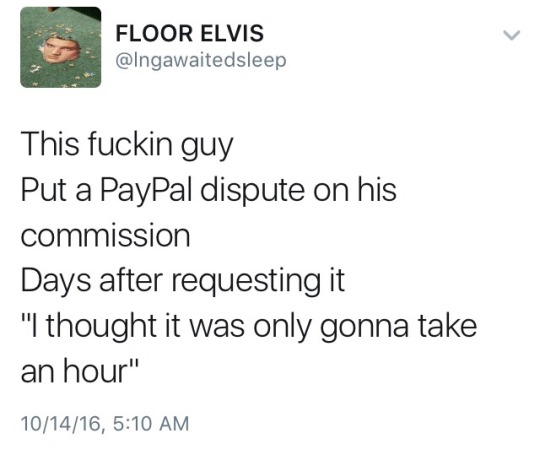
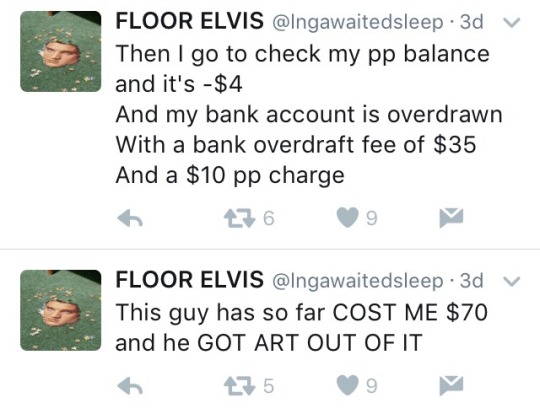

Attention non-artists who commission artists: don’t fuckin do this???
335K notes
·
View notes
Text
Incidentally, not all private business is "profit motivated". Even where owners of small business are taking profits, that's often just how they pay themselves a wage. When I owned a small business, some months I would only take the minimum salary required for benefits (a few hundred), because the cash flow wasn't there to pay me properly. Other months might be better so I'd take out some profit. Over the piece it added up to a fair wage, but nothing more than that. Most of the surplus the business generated was reinvested in equipment, staff, marketing etc.
I just want to say this because people who run big business in a way that's focused on generating and extracting profit, above and beyond the actual living being made by those who work in it, like to conflate "profit" as in a working business owner's pay with "profit" as in wealth extracted from the business to give to non-working shareholders, when those are very different things.
They also like to conflate the need for a business to run healthily and well, generating enough surplus to reinvest and expand, with their perceived "need" for a business to generate an ever-increasing amount of excess wealth that can be extracted and given to non-working shareholders. They do this by using phrases like "bottom line" and "business decision", "margins" and "make money" to mean things other than what they would mean to a responsible business owner.
Why do they do this, and why does it matter? Because most people believe, on a common-sense level, that businesses need to "make money" - i.e. they need to generate enough money to pay all their workers, keep the lights on, do maintenance, invest and perhaps expand, otherwise the business will cease to function. That's obviously a necessity for any business, and that's something people sympathise with as a priority.
However, most people do not, in fact, sympathise with a perceived need to "make money", in the sense of undercutting quality, exploiting customers and depriving staff of a living in order to extract large amounts of wealth and send it away to people who don't actually do any of the work. If they think about it they will not consider these things a necessity, nor will they sympathise with them being made a priority at the cost of the things that have real value - the staff's living, the customer's value for money, the quality of the products, etc.
So if you want people to give you a pass on things that they really don't think you should be doing, you cloak your naked asset-stripping in the language of good business. The language that the guy who runs that really good local garage or restaurant or construction firm would use. And so you don't feel like you can question it, because you're not a business person yourself, and you know these things matter to real business people, so they must matter in this case as well.
It's flim flam. It's a con. We all need to learn to distinguish between "good business" in the real sense, and "good business" as a front for anti-social behaviour on an institutional scale.
3 notes
·
View notes
Text
New biz owner feeling overwhelmed? 😩 It's crucial to protect your peace and set boundaries from the start! Learn how to avoid the "always on" trap and build a sustainable business (and life!). #smallbusiness #boundaries #worklifebalance #entrepreneursh
#avoiding burnout#Boundaries#business advice#client management#entrepreneurial journey#entrepreneurship#new business#professionalism#protecting your peace#self-care#setting expectations#small business#startup#time management#Work-Life Balance
0 notes
Text
Selling rare big-ticket items? Remember: your customer’s just a beginner.
#Blogging#BusinessAdvice#BusinessDevelopment#BusinessGrowth#BusinessOperations#BusinessStrategy#ContentMarketing#CustomerService#delegating#delegation#EmployeeRelations#Entrepreneur#Entrepreneurship#Marketing#MarketingStrategies#PaigeNejame#ProductivityHacks#SEOTips#smallbiz#SmallBusinessadvice#SmallBusinessManagement#SocialMediaMarketing#StartupAdvice#Business Advice#Business Development#Business Efficiency#Business Operations#customer service#entrepreneurship
0 notes
Text
Honestly this is pretty solid advice regardless of what you're selling. Keeping this handy as I finally get my shit together and sell some art.
hey i want to talk about how you should be promoting your work as an erotic author/illustrator
i'm writing this up because the marketing aspect of my work as an erotic author/illustrator is a science to me, and also because i'm the guy who gets unreasonably annoyed when i see other creators not properly advertising their work. you presumably want to make money off your work. this post will be written under the assumption you want to make money off your work but are doing a bad job at it. it will be very confrontational. if you read this and feel attacked you're right and i am attacking you.
this is geared toward selling erotic comics/writing/books/art as products. i will probably write more than one post about this subject so if i didn't touch on something you want to know more about, comment/send me an ask and i'll keep it in mind for the next one.
i will start with my first and least specific but most important point:
DON'T GET FUCKING CUTE
hi are you paying attention. i'm gripping you by the sides of your face. do not get fucking cute with what you are trying to sell. you are not a big enough property to get cute, nobody LIKES it when big properties get cute, and you are selling porn. you have to own this. you have to be up front about this. don't be tongue in cheek, don't be all teehee i wonder what this could be~, don't be secretive. you are selling a product. you have to fucking act like it. you are an adult selling pornography to other adults. i am GRIPPING your HEAD you NEED to understand this.
and to be clear when i say 'cute' i mean coy. i don't mean cutesy, as in the aesthetic. you can be as hello kitty pastel ten emojis a post uwu as you like when you're building your audience and generating hype. but when you start trying to sell, don't be vague, don't be sarcastic, don't mislabel your work as a joke and assume everyone is on it. because they're not.
you must always assume 75% of the people seeing the thing you are advertising have no fucking idea who you are. and that includes a huge chunk of the people who already follow you. they do not know who you are or what you've been working on for two months or why they should care about it. they just got here. somebody just reposted it. they are seeing it for the first time. most people are only looking at social media for a tiny chunk of their day. they are not keeping up with you. you cannot get cute about what you are trying to sell because nobody knows what it is until you tell them.
okay are you still with me. we are going to talk about clarity now.
YOU GOTTA TELL ME WHAT IT IS
good lord the amount of times i have gone to buy somebody's comic or book and had no idea what's actually in it or what it's about. who are the characters? why should i care about them? what do they do in it? what is the premise of this thing you want me to spend $5 on? why would you not tell me? i'm shaking you again. please i have to know what i'm buying i only have so much money to spend on porn.
porn, arguably more than any other genre, relies on knowing exactly what is in it. you do not want to surprise your readers with a kink they were unaware of! and on the flip side, you do not want to miss out on your target audience! if your book contains a hot spider babe laying eggs in an elf, you have to say so. not just so people who don't want to read about eggs know it isn't for them, but so the people who are egg crazy can see that and go "oh fuck YES i love EGGS here is my $5 and an extra $2 tip for catering to me specifically". a contents/features list is as much an advertisement as it is a warning!
as for re: who the characters are and why should i care, i'm sorry but you need to learn how to write sales copy. you have to write blurbs. you have to get good at the shit that goes on the back of a book. we all hate it but we have to do it. i want to know who the characters are and what the context is. i, personally, am not interested in contemporary stories as much as fantasy and historical. please tell me what genre this porn exists in so i know if it aesthetically appeals to me. pull some books off your shelves and see how they do it. hell man go look at mine.
while you're there, note that every single book of mine has a sample of what's in it. this feels like such a no-brainer to me but again! the amount of times i have gone to buy somebody's work and they don't show me what their work looks like! you gotta give me the first page or two! just enough that i know if i like the way your writing sounds, or the way you draw your comics! i don't know you! i am not going to trust that you're good at what you do just based on a cover. the cover is to get me to this step, it is not the only step. you have to show me that you're worth spending my money on!
to put it less cynically, you want to catch my interest. you want me to go 'oh i want to see more of this', you want me to go 'ahh i want to know where this goes!' you need to get me invested and craving more. earn my $5!!!
YOU HAVE TO MAKE IT EASY TO GIVE YOU MONEY
hey go look at your bio right now. go look at your pinned post. do you have a link to your patreon there? do you have a link to your itchio/gumroad/whatever? do i have to click more than once to get to the places you want me to go to give you money? why? why are you making me click twice? have we learned nothing from every website making you click an extra time when they make some stupid UI update and how much it pisses us off? i have already given up, i have forgotten you, i am not giving you my $5 today. put your links in the easiest places to get to them.
god literally as i was writing this post i went to go find somebody's itchio to see how they described their work and it was not anywhere on their profile. grabbing you and shaking you PUT THE LINK WHERE I CAN FIND IT. don't make it hard! make it easy! i am a dickhead sitting on the toilet scrolling, saw your post, and was interested enough to read further. but you made me go to your bio to find your linktree and oops i have already gone back to my timeline to look at the boobies in the next post. stop wasting precious bio space on DNIs and put your fuckin links there!!!
this is more for the twitter people, but: just put the link in the damn post. just say the word commission. just say it's for patreon. "wuh wuh the algorithm" it is not the damn algorithm it's that everybody hates advertising and nobody wants to retweet ads. putting slashes in the words doesn't do anything and you look like a fool. i have posted so much art that says it's 'a commission for ___" and it did exactly as good as any other art despite having the word commission in it. and by doing the slashes you just made it impossible for anybody to search your account for your commission information (which should be at the VERY LEAST in a post under your pinned tweet if you're not actively posting about them being open).
okay that went on a tangent i'm going to back to the point of putting the link in the tweet. put it in the first post. not in the first reply. don't tell them to go to your bio. put it in the post people are actually going to share. it's fine to put more information in the thread but people are only ever going to share the first post. so put the link there. you have to make it easy. putting links in tweets can hurt you algorithmically, even in the replies. so you're better off having it in the post that actually gets seen and shared. i don't want to open the tweet and scroll to get to your sales page where i ASSUME you will have put all the information anyway. put it in the tweet that just got retweeted by itself onto my dash!
also you have to share it a ton of times. i repost my shit every few hours when i'm trying to push a new product. as i said before people are not 24/7 looking at their timelines. they missed it the first time. they missed it the second time. they didn't get paid yet that week but they were after the eighth time and you reminded them again so they finally bought it. that i will still get sales every time i repost a book ad weeks after release says there are always people who missed it, or who only just showed up.
abandon your pride and shill. shills pay their bills. anyone who gets annoyed about it isn't giving you money in the first place. don't worry about looking like a sell out. don't apologize for plugging your own work. post about it often, post about it in different ways. post about it. post about it. you are not going to make money if people don't know you have something to sell them. if you want to make a career out of it, you need to act like it.
I DON'T HAVE A FOURTH POINT
kisses your forehead. i'm sorry for yelling at you. i've been making and publishing and selling adult art for the past two-three years and have got myself to the point where it pays my rent, and i got there by paying attention to what does and does not work.
please do your best to make money. i want you to make money.
as i said above i plan to write more posts on this subject, such as cover design, how to actually write sales copy, and best practices with running a patreon, but if there's things you would want to hear more about leave a comment or send an ask! i will probably be less aggressive on future topics. these are just things that have grinded my gears for a grip.
3K notes
·
View notes
Text
"Stop doing this." You’ve heard it before, but is it really the right advice for YOUR business? What if following it means losing touch with your audience - or worse, your identity? It might be time to rethink what advice you take and why.
#audience connection#audience engagement#audience targeting#authenticity in business#avoiding business pitfalls#bad business advice#business advice#business authenticity#business growth strategies#business identity#business mindset#effective business strategies#entrepreneur#entrepreneur struggles#entrepreneur success#entrepreneur tips#entrepreneurs#generic business advice#how to grow your business#marketing mistakes#marketing tips for entrepreneurs#niche marketing#personalized business strategies#Small Business#small business tips#stop doing this#tailored marketing advice#understanding your audience#unique business approach
0 notes
Link
CFO Services In Mumbai : CFO Services : Free Download, Borrow, and Streaming : Internet Archive
0 notes
Text
🤦🏻♂️ horrible business move really. doubt anyone wants to stay there now!


Detroit, Michigan's University Motel, pictured in the 1960s and 2024
283 notes
·
View notes